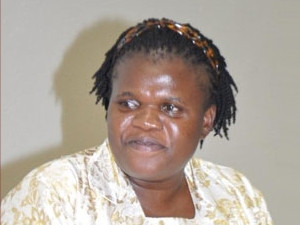
The country's broadcast digital migration process - which has been mired by controversy, lack of clarity and speculation of a power struggle between governmental departments - has now been claimed by the Department of Communications (DOC).
While the DOC's position seems to contradict the stance of the Department of Telecommunications and Postal Services (DTPS), which previously claimed this as one of its priority projects, it has done nothing to clarify the actual progress of the migration policy. The latest sighting of the policy was when telecommunications and postal services minister Siyabonga Cwele was preparing to gazette the final version of the document at the end of August.
However, that deadline was not met and the policy was sent back to Cabinet for "final approval", with little in the way of explanation. Meanwhile, Cwele has promised to announce a switch-on date this month, but the DTPS has been unwilling or unable to give further updates in the past few weeks.
Speculation has emerged that the delay was caused by interference from communications minister Faith Muthambi, who was accused of starting a turf war between the DOC and the DTPS. While both departments have denied there is a power struggle between Cwele and Muthambi, no other information has come to light regarding the digital migration policy, or the nature of the delays plaguing it.
In contrast though, the DOC's latest statement - claiming digital migration policy as its own - seems to confirm a power struggle exists between the two ministers. Muthambi's spokesperson, Bongiwe Gambu, says: "The Presidential Proclamation, gazetted in July 2014, transferred the Broadcasting Act No 4 [of] 1999 to the newly-established Department of Communications."
She adds this "logically transfers the policy formulation responsibilities and any project relating to broadcasting", including broadcast digital migration.
"We are finalising details on how to get the migration project on track and we will share those details with industry and the public during the month of October 2014," says Gambu. She emphasises: "Based on the above, we are intensely involved in the digital migration policy."
Economic impact
The DOC's stance has once again frustrated opposition politicians and industry observers, who have repeatedly criticised government for refusing to take an official position on digital migration and which department it should ultimately fall under.
Democratic Alliance shadow minister of telecommunications and postal services Marian Shinn blames the conflict on president Jacob Zuma's split of the previous communications ministry. "You now have two departments fighting about [digital migration]. Yet, they seem to have no concept of the economic impact this is having on industry."
Shinn also blames government for failing to come out openly and clarifying the confusion that surrounds the process.
ICT veteran Adrian Schofield - who has long been critical of Zuma's decision to split the communications ministry into two - also says the current situation is a result of the reconfiguration of the old DOC.
Schofield has labelled the split and Muthambi's appointment as communications minister a "mistake", calling for the previous configuration to be reinstated.
It is critical progress is made in areas vital to the ICT sector and the country as a whole, including digital migration, spectrum allocation, set-top box manufacturing and mobile interconnect fees, says Schofield. "I would suggest they put back into Cwele's department what belongs there and that we get moving."
Share